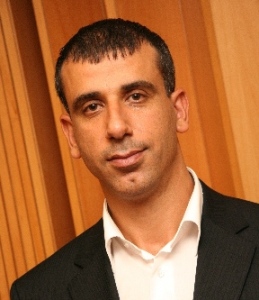 The Third Australian Conference on Islam, sponsored by
Charles Sturt University (CSU), will be held in Melbourne this week and will
consider how the theological foundations of violent extremism can be refuted.
The Third Australian Conference on Islam, sponsored by
Charles Sturt University (CSU), will be held in Melbourne this week and will
consider how the theological foundations of violent extremism can be refuted.
Theologian, academic and author in CSU's Centre for Islamic Studies and Civilisation Associate Professor Mehmet Ozalp (pictured) will deliver a keynote address at the conference on the topic 'Islamic arguments used to justify radical ideology'.
Professor Ozalp said, "Radicals always promote a narrative made up of an ideological interpretation of Muslim suffering, proposition of force and violence as the only solution, using selective quoting of Islamic texts to legitimise the ideology and violent solutions.
"At this conference we will examine the underlying theological and religious justification of radicalisation.
"Refuting radicalisation cannot be done in an atomised manner, rather, it needs to be an integrated approach to holistically address the radical narrative at three levels – a more comprehensive but realistic interpretation of Muslim suffering, an alternative solution that produces real results, and a clear exposition of fundamental Islamic teachings."
Dr Zuleyha Keskin, lecturer in Islamic Spirituality and Contemporary Islamic Studies and the Course Director for CSU's Centre for Islamic Studies and Civilisation is the organiser of the conference. She said Islamic studies has become a topic of increasing importance in Australia's multicultural society.
"Pressing issues of the 21st century include Islamophobia, radicalism and shariah, and the study of Islam in more detail can shed light on all these issues and encourage enlightened discussion through understanding."
In 2017 CSU will offer a new course, the Master of Contemporary Islamic Studies through its Faculty of Arts and Education. It will provide students with insight into traditional, spiritual and historic aspects of Islam and allow them to develop advanced knowledge about political, legal and social issues that impact on Islam, Muslims and the Islam-West relations.
The Master of Contemporary Islamic Studies addresses the professional needs of people who deal closely with Muslims in daily life for political, social, educational, business, gender relations, culture, community and public service purposes. It is available to study over two years full-time or over four years part-time. CSU also offers a Graduate Diploma of Contemporary Islamic Studies (two years part-time) and a Graduate Certificate in Contemporary Islamic Studies (one year part-time).





Social
Explore the world of social